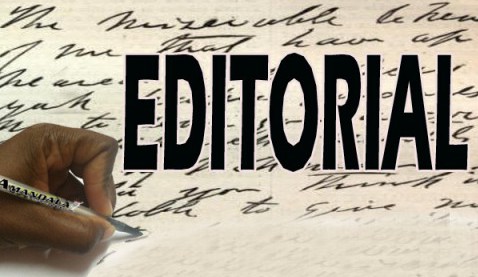At this newspaper we had been anticipating an increase in political campaign violence down the road because of how much the political directorate had become involved with the various gang leaderships in Belize City.
Violence is one of the bases of gang credibility, and it is an area of relative expertise for them. The political parties are supposed to specialize in rhetoric and argument in their campaigns to convince voters to support their candidates on election day. Political parties and gangs are, quite needless to say, supposed to be distinct and separate from each other. The old saying goes, that “east is east and west is west and never the twain shall meet”. Nevertheless, we know that in Jamaica, which has historically been like a big brother to Belize in many ways, serious gang violence entered electoral politics almost four decades ago, and the situation there has been very bad ever since.
The extreme violence which occurred in Orange Walk Town with the kidnapping and murder of Ramon Cervantes, Sr. some months ago, was linked to electoral politics in certain circles from the very beginning. The release of a recorded telephone conversation last Wednesday morning by the Cervantes family has made the accusation that party politics is involved with the Cervantes, Sr. kidnapping/murder, headline news in Belize’s print and electronic media, and indeed in the media across the border in the Yucatán.
When the kidnapping/murder first occurred, the link to party politics was explicitly made by an Opposition PUP radio station broadcasting out of its Belize City studio. That linking set the stage for last Wednesday’s bombshell telephone conversation broadcast. When that link was first made, it was made by personal attacks against the senior police officer in charge of the Orange Walk Town/District formation, with the allegation that he was a tool in the service of the most powerful ruling politician in the town.
Clearly, an amount of the linking of the kidnapping/murder to party politics was done by word of mouth, mostly in Orange Walk Town, and all we know at this city-based newspaper is what we were hearing in Belize City, an hour’s drive away. In this essay, we want to look at political radio in Belize, and the exponential increase in the dangers of political radio as Belize’s political climate becomes more charged.
KREM Radio became a reality in November of 1989 because, in the beginning of the process, the owners of this newspaper felt insulted by the fact that, in an independent Belize, the British armed forces here were broadcasting on their own radio station in Ladyville. Partridge Street attempts to get a radio station licence from the ruling UDP were being treated with disrespect, whereupon the Opposition PUP made it a plank in their 1989 general election campaign platform that they would award Amandala a radio licence if they were elected, which they were.
The radio licence for Amandala was a PUP election gimmick. The new KREM Radio was not designed to survive: it was designed to crash. But that is a long story, not for today. When the fledgling KREM Radio, against heavy odds, survived and competed with the 40-year-old government radio station, the power structure of Belize became alarmed. Partridge Street, which had been publishing the leading newspaper for more than a decade, now owned the only private Belizean radio station. Beginning in 1993, succeeding governments of Belize, in the service of the oligarchy, handed out radio licences all over the place. It was almost a free-for-all. Thus, the impact of KREM was severely diluted by massive proliferation.
For the purposes of this essay, the important thing is that UDP Minister of Broadcasting Dean Barrow gave the PUP a radio licence in 1994. That licence was in the name of Gerald Garbutt, but Mr. Barrow would have known that Mr. Garbutt was being financed by PUP area representatives (and former Cabinet Ministers) Ralph Fonseca and Glenn Godfrey.
When the PUP came to power in 1998, they quickly returned the Barrow favor by giving him a radio licence for a station which they knew would become a UDP propaganda station, Mr. Barrow having become UDP Leader with the resignation of Manuel Esquivel immediately after the UDP’s August 1998 defeat.
Well, by golly, the political radio chatter in Belize reached a level of vituperation and implicit violence years ago. The political radio hosts cannot control themselves, and they do not really belong on the airwaves. They contribute to a level of atmospheric violence in our political climate. Belize does not need this indecently personal kind of chatter.
In fact, the local political parties should not even own and operate weekly newspapers as such. The waste of government finances with the Cabinet demand for Government of Belize-related advertisements is a practice which began with the PUP Belize Times way back in the 1960s. When the UDP finally came to power in 1984, they copied by rote what they had been seeing, and that waste continues. Only party fanatics read the UDP government newspaper, which bulges with GoB ads. When the PUP come to power, it is their newspaper which will receive these excessive revenues. UDP or PUP, it’s an absolute waste of taxpayers’ monies.
But, this is a political culture which became ingrained over decades in Belize. We Belizeans didn’t do anything about it, and then it spread to broadcast radio, even television. Our argument is that as the politics of Belize becomes more dangerous, the political radio stations will continue to raise the level of volatility at the precise time when all of Belize’s energies should be directed towards seeking to lower that volatility.

